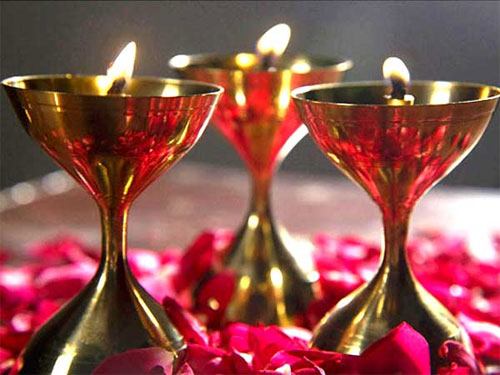BANGALORE, October 29: Every year, at the end of five days of Deepavali, the Karnataka State Pollution Control Board measures air quality and noise levels in key areas. Even as it reiterates its appeal to citizens to opt for a cracker-free Deepavali, the Board’s statistics for previous years chart a year-on-year increase in pollution levels.
For instance, in the City railway station area, sulphur dioxide and nitrous oxide levels were seen up by 95 per cent and 67 per cent respectively. On the whole, RSPM levels increased across the city in some areas as much as 46 per cent, while carbon monoxide levels near the city railway station were up by a suffocating 70 per cent in S.G. Halli where the KSPCB has a monitoring station.
Not to be left behind are ambient noise levels in the city, which in some areas are up by around 20 per cent.
These statistics paint a disturbing picture. Every year, hundreds sustain cracker injuries, and thousands suffer from respiratory problems. Those who can afford it even prefer to leave the city as the asthma capital of the city becomes patently unliveable in for the five festive days. As Bhujang Shetty, a doctor at leading eye hospital Narayana Netralaya, says that over half the injuries that come in every year are people aged between 9 and 14, and an equal number of them are those who aren’t themselves bursting crackers. “People travelling on the roads or sitting at home are often involved in freak accidents, where they are the victims of somebody else’s celebrations,” he says.
This year too the KSPCB has urged people to not use crackers and celebrate it as a festival of lights. “It has become a sign of opulence. It is actually a nuisance. Deepavali should be a festival of lights rather than one of injuries.”
KSPCB activities
Over the coming days, the KSPCB will conduct extensive campaigns to dissuade Bangaloreans from bursting crackers. These include campaigns focussed on children (where school children will be encouraged to take an oath and films will be screened), and plenty of public awareness campaigns.
The Police Department has also been instructed to set up squads to monitor usage of crackers across the city, mainly to crack down on usage of crackers after 10 p.m. Other activities include rigorous monitoring and documentation of pollution and collecting and analysing crackers to keep track of the use of non-permitted chemicals and weight of crackers. KSPCB will also use its Facebook and Twitter pages to create awareness.
Respiratory issues
Every year during Diwali, hospitals are full of patients who suffer from asthma and other respiratory ailments. “Those who are most troubled by this are young children and the elderly. Things get so bad for some people that we have to admit them till the festivities are over,” said a doctor at a leading private hospital. He adds that he often advises patients to leave the city if they can as celebrations are much less in smaller towns, he said.

